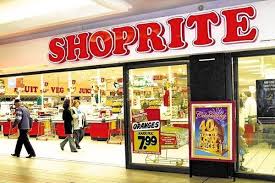Shoprite: Analyst says exit will give rise to more entrants, opportunity for investment
August 4, 20201K views0 comments
Shoprite, Africa’s biggest basic food item retailer, was early Monday said to be ready to quit Nigeria after 15 years of business activities in Africa’s biggest economy, but it was later clarified that the retailer was looking at interests in its Nigeran business by investors.
Although market analysts familiar with this type of development say any company’s exit from an economy should be a major cause for concern, moreso for a country like Nigeria which needs foreign direct investment, they stressed that its importance in job creation cannot be overemphasized.
Uche Uwaleke, financial economist and professor of capital markets at Nasarawa State University, in a written comment to Business A.M, said: “The exit of Shoprite, or any other foreign business for that matter ordinarily should be a cause for concern especially for a country like Nigeria which is in dire need of foreign direct investment. The importance of foreign direct investment, especially in the area of job creation, cannot be over emphasized”.
Background to the suggestion it would quit Nigeria started after the food merchant said in November that it was assessing its store activities outside South Africa and would consider leaving certain nations if that would help switch provincial deals decreases. The retailer has been combating money prompted currency-induced inflation in a few other African nations.
However, Shoprite further uncovered that because of the lockdown occasioned by the coronavirus pandemic, the influx of clients into different outlets declined by 7.4 per cent with 18.4 per cent expansion in the normal basket spend.
With particular reference to Shoprite, the big question is: What is the net contribution of the company to the Nigerian economy?
The Cape Town-based food merchant has begun a proper procedure to consider the possible offer of all or a dominant part stake in its grocery stores in Nigeria.
International supermarkets (excluding Nigeria) contributed 11.6 per cent to group sales and reported a 1.4 per cent decline in sales from 2018. South African operations contributed 78 per cent of overall sales and saw an 8.7 per cent rise for the year.
Uwaleke further said: “Beyond the menial jobs, how many Nigerians are in the employ of the SA firm? Aside from the crowding-out effect of Shoprite on local competitors, its operations in Nigeria have also contributed to dwindling foreign reserves through imports that serve to satisfy the appetite of wealthy Nigerians for foreign goods.
“So, I think the type and quality of FDIs should matter for Nigeria. What the country needs now are foreign direct investments in manufacturing, agriculture value chain, Telecoms and IT and not businesses that promote the consumption of foreign goods and perpetually leave us import-dependent, which is why I think Nigerians should not lose sleep over the exit of Shoprite. Where possible, the company should be bought over by Nigerians,” Uwaleke disclosed.”
As indicated by the announcement released by the South African retailers, “following approaches from various potential investors, and in line with our reevaluation of the group’s operating model in Nigeria, the Board has decided to initiate a formal process to consider the potential sale of all, or a majority stake, in Retail Supermarket Nigeria Limited, a subsidiary of Shoprite International Limited”.
In the announcement, Shoprite said the results for the year don’t mirror any of their tasks is Nigeria as it will be classified discontinued operation.
“As such, Retail Supermarket Nigeria Limited may be classified as a discontinued operation when Shoprite reports results for the year. Any further updates will be provided to the market at the appropriate time,” the statement reads.
Uwaleke, while rooting for Nigerians to buy stakes in the retail grocer, he reiterated that Nigeria’s economic potentials cannot be overlooked by worthy investors to encourage the inflow of FDI.
“As Shoprite exits, some other companies are waiting to berth. The right business environment post COVID’19 will bring this about. The country’s economic potentials and market size are such that the World cannot ignore”.
In a related development, Ayo Bankole, a strategy expert and convener of Lagos SME Boot camp, while commenting on the matter, said that: “Again, I have always said most investors overestimate the Nigerian market. Even most analysis on Shoprite exit is emphasizing on Nigeria being the most populous African country. We often forget that over 70 per cent of us live in poverty. And only Lagos holds a real economic promise”.
“While this may open up opportunities for local investors in that sector, it is a bad pointer to what Nigeria has become an investment destination. Loans are still hard to get. Tops gun are leaving the market.
“It is also an indicator of how poorer Nigerians have become, as grocery retail is a direct beneficiary of a prosperous citizenry. A continuing exit of large retailers simply means one thing – disposable income is reducing. The government needs to fix the poverty level and stop virtue signalling,” Bankole expressed.
Although, South African firms have battled in the Nigeria market and most recently was Mr Price who left the market after Woolworths did likewise six years back.
In the interim, it is pertinent to know that Nigeria was ranked 131 on the 2019 World Bank’s ease of doing business index. However, Nigeria’s government projects that the country would have moved to 44th position by 2023.

